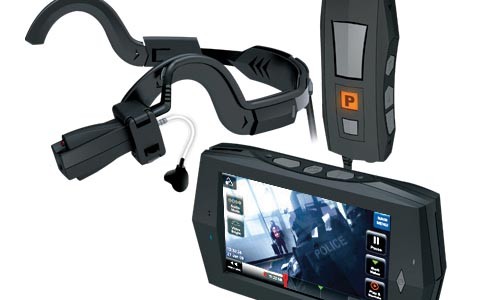For months now, federal investigators have been trying to determine what happened when three undercover police officers arrested Jordan Miles on Jan. 12. Was the former CAPA student acting suspiciously? Did the officers properly identify themselves? Did Miles resist arrest?
Some experts say authorities could have answered those questions months ago -- if the officers had been using personal, on-officer cameras.
"If you'd had the three officers all wearing cameras, you would have a pretty detailed picture of what happened," says David Harris, a law professor at the University of Pittsburgh who specializes in police issues. "There would be a lot less dispute."
On-officer cameras, which are worn like ear-piece headsets, have been tested by a handful of police departments, including Cincinnati and San Jose, Calif. The cameras have been called the "wave of the future" for law enforcement -- a gift for both citizens and officers.
Cameras have already become more popular: After the Miles controversy surfaced, Pittsburgh City Council passed a bill requiring all new police cars to be equipped with video and recording equipment. But Harris says a dashboard-mounted camera wouldn't have captured the Miles incident.
"If you were thinking of putting cameras in police cars," Harris says, "why not jump ahead a couple of generations and try these things?"
"These cameras go above and beyond what an in-car camera can do," agrees Lt. Tom Sims, of the San Jose Police Department. "All police departments are going to be moving toward this [technology]."
Made by Arizona-based Taser International, the cameras cost roughly $1,700 each, plus an additional $100 per month to service. Footage is regularly uploaded to a computer system for storage, and can capture everything from a mundane traffic stop to a dangerous gun fight. While some worry that the cameras are too intrusive, proponents say the new devices help ensure police accountability and limit false complaints.
San Jose recently finished a year-long pilot study of the cameras. While the study sample was small -- only 17 of the department's 1,200 officers were equipped with them -- Sims says results were positive. "Overall, the officers could appreciate the benefit of having the cameras," he says.
San Jose's police department, which is facing a $29 million deficit, probably won't be able to equip the whole force with cameras any time soon. But, says Harris, "It's clearly an idea whose time is going to come."



















